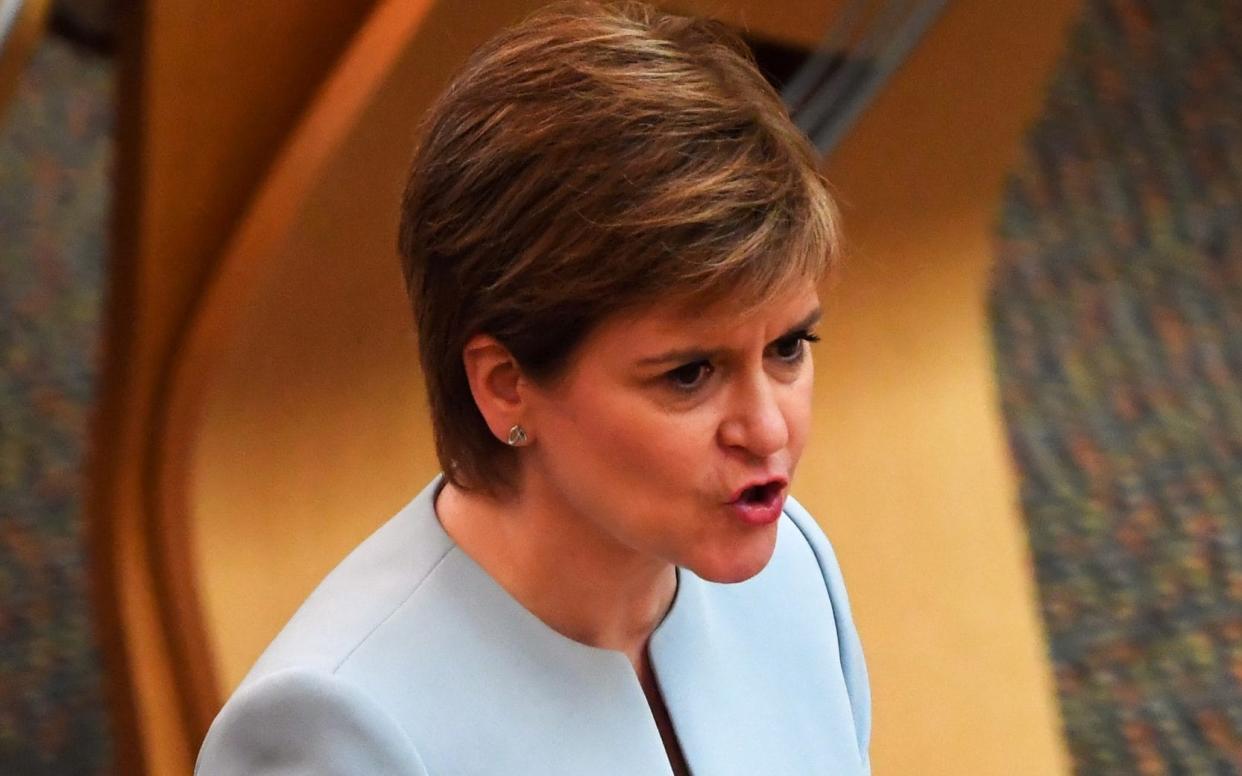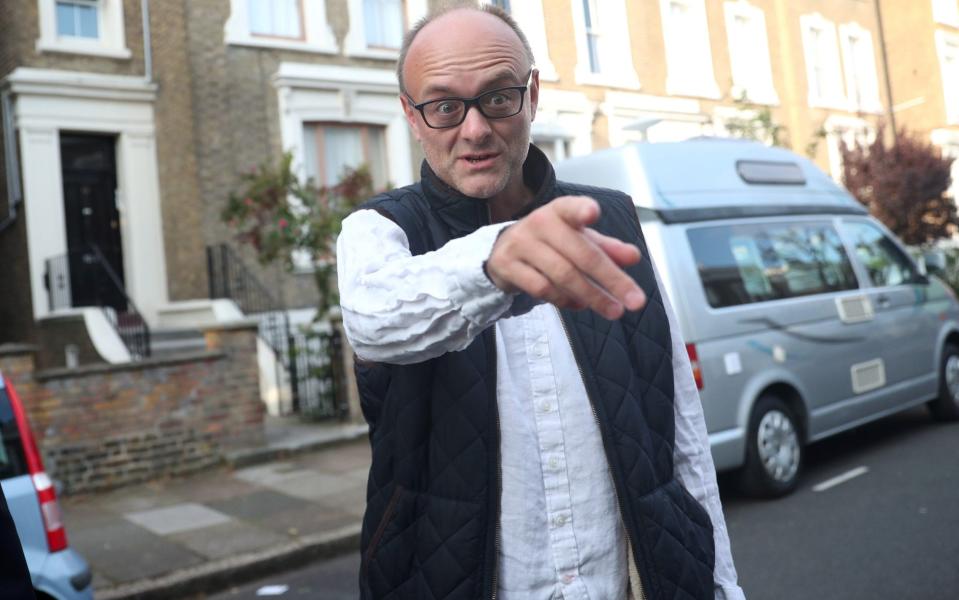Nicola Sturgeon denies Dominic Cummings’s claim that she pushed to delay quarantine plan

- Oops!Something went wrong.Please try again later.
- Oops!Something went wrong.Please try again later.
- Oops!Something went wrong.Please try again later.
Nicola Sturgeon has denied Dominic Cummings's claim that she pushed to delay a crucial plan to halt the spread of Covid before the UK went into full lockdown.
Boris Johnson's former chief adviser said the First Minister had backed Matt Hancock, the Health Secretary, in an effort to stall a requirement for entire households to quarantine if one member had symptoms.
Mr Cummings claimed she had supported Mr Hancock's attempt to put off the measure because a helpline was not yet ready, but that the pair were overruled by Mr Johnson. Ms Sturgeon's spokesman denied the claim on Thursday, leading opposition parties to step up demands for a public inquiry.
Mr Cummings – who in an explosive blog this week also revealed that Mr Johnson had described Mr Hancock as "totally f------ hopeless" – said Ms Sturgeon and the Health Secretary had teamed up at a Cobra meeting on March 16 last year.
Until then, only individuals with a cough or high temperature were asked to stay at home, rather than full households. The UK went into a full lockdown on March 23.
"On 16 March in Cobra, Hancock tried to delay the announcement on household quarantine 'because the helpline isn't ready'," Mr Cummings wrote. "Sturgeon also supported this delay. I and others warned the PM in advance this would happen and he overruled them. Both of them have misled the public about this."

The revelations have the potential to prove damaging to Ms Sturgeon, who has cultivated an image of being far more cautious than Mr Johnson in her response to the pandemic.
She has admitted that, with hindsight, the UK should have gone into lockdown sooner, but critics claim she made many of the same mistakes as the UK Government, such as discharging untested elderly hospital patients to care homes.
Ms Sturgeon's spokesman insisted the claims about the March 16 2020 meeting were inaccurate, saying: "That account from Cummings does not accord or tally with our recollection of that particular meeting. The First Minister was very much in favour of moving towards what ultimately became known as lockdown.
"Just a couple of weeks ago, Cummings was suggesting the First Minister was effectively attempting to bounce UK ministers into going further and faster in terms of lockdown. Now he appears to be asserting the diametrically opposite."
The SNP has previously used Mr Cummings's disclosures about the UK Government's early pandemic response to accuse Mr Johnson of making "catastrophic errors" in his handling of the crisis.
However, when giving evidence to a Westminster committee last month, the former adviser also accused Ms Sturgeon of undermining a four-nations approach by "babbling" about high-level meetings on TV, meaning participants were reluctant to speak openly.
Jackie Baillie, Labour's health spokeswoman, said: "These are alarming accusations, but we don't need a blog from Dominic Cummings to know that the Scottish government were moving too slowly at the start of the pandemic.
"Nicola Sturgeon needs to own up to her mistakes and come clean on her role in these decisions. More importantly, we need the full judge-led public inquiry to begin as soon as possible to give us the answers that we all need."
Willie Rennie, the leader of the Scottish Liberal Democrats, said: "Nicola Sturgeon has taken a more cautious tone, but the fact is that her government has marched in lockstep with the UK Government and made many of the same mistakes.
"From re-opening international travel to the catastrophic decision to send patients from hospitals into care homes, there are a host of issues that require the attention of an urgent inquiry."

